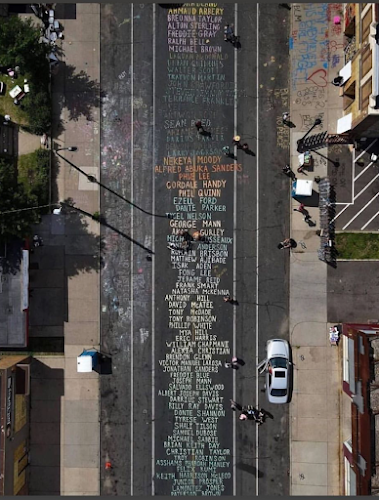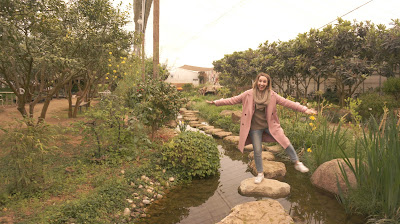My White Privilege
The last few months have uncovered a process of unlearning for me. With the Black Lives Matter movement taking a more prevalent stance as a reaction to the police brutality and murders of innocent people like George Floyd, Breonna Taylor, Ahmaud Arbery, Elijah McClain, Riah Milton, Dominique "Rem'mie" Fells and countless other people of colour. I have truly lived a life of ignorance around my white privilege, and while I feel shame around that, I am also learning to forgive myself and choose to move forward in change.
Before I get into what I have committed myself to do as an anti-racist and ally for the BIPOC community, I feel that it is necessary for me to reflect on the privilege that I have had my entire life, that I was not necessarily aware of at the time.
- Growing up in a suburban neighbourhood in Nepean in the 90's surrounded mostly by white children, watching TV shows with all white casts like Full House, Friends and Boy Meets World and playing with dolls and Barbies who were all white, I was surrounded by messaging and images depicting a world of people who looked and spoke like me. I did not have the experience of not being able to relate to the people around me because we looked different. As a child, that created for a deep sense of security around my self image and self esteem, that I would not have been aware of at the time, but most certainly am now.
- My classes became more diverse in high school where I was surrounded more by people of colour, however white people made up the majority race in all of my educational experiences growing up. It was only until I moved across the world in my twenties that I would feel a small sense of being the minority race, and even then I still had (have) white privilege.
- My entire childhood and adolescence I was surrounded by people who looked like me in the media I was exposed to, in my communities and relationships and although I had friends who were Asian and Black, I will admit that I never stopped and thought about what the world we were living in must feel like from their perspective. I treated them the same as I did anyone else, but I ignorantly assumed that was the norm. I also did not take time to think about the barriers that they and their families had to endure simply because of the fact that they were not white.
- Fast forward to moving to Korea at 23 years old and being faced with my "whiteness" in a manner that I had never experienced before. I was now one in a sea of millions of people with a different ethnicity than me. And for the most part, I was treated like a beautiful fair skinned young woman, now my white skin was viewed as exotic.
- I was surrounded by cosmetic advertisements with "whitening agents" to lighten your skin, cosmetic surgery for widening your eyes, broadening your nose and shaving down your jaw line to emulate the more Caucasian features.
- I would go places and feel people noticing me, staring unapologetically and even sometimes trying to speak to me in English with excitement. Although this experience was not always pleasant, and sometimes left me feeling objectified as a woman, I was still for the most part perceived in a positive way. AND I was never made to feel ashamed of my skin colour.
- Meanwhile, my friends who had darker skin were accused of being ugly and scary by their students, who while only children were simply regurgitating everything they had learned through media exposure and society as a whole.
- I was blissfully ignorant of my privilege, and in many ways I capitalized on it. It was a staple practice to attach my photo to my resume when applying for jobs there, and I was told on multiple occasions that as a teacher, parents preferred young, attractive, white women to teach their children English because we met the definition of what represented an English Teacher.
- I also never became fluent in the language while having lived there for almost six years because I met a Korean man who could play translator for me. And I met his family and friends who tried to speak English to me even though I was in their country, dating their son and friend. This is not to say that I did not study Korean and try, but there was so much deference to my language and that, I know, is because of the superiority that we place onto the White English Person.
- Listening. Listening to people of colour when they share about their experiences, holding space for them to be completely honest and transparent and stopping myself from interrupting and adding my experience to the conversation when it takes away from theirs in some way.
- Consuming BIPOC literature, media, news, food-diving more into learning about the cultures outside of my skin colour. Watching TV shows like "Dear White People", movies like "13TH" and reading books like How to be an Anti-Racist.
- Educating myself more on my privilege through news, information and social media
- Amplifying the voices of people of colour on my social media, and in my workplace while wholeheartedly supporting their success.
- Voting. For diverse representation in all forms of leadership that I have access to voting for.
- Donating to causes that are created for people of colour, and signing petitions to bring justice to a corrupt and inherently racist system.
- When I make a mistake, apologizing for it and doing better. Being willing to set aside my pride and listen to what I have done wrong.
- Advocating on behalf of my husband and his family when they come here, and doing everything I can to ensure that he is treated equally. Holding space for him to vent about his concerns and challenges.



Comments
Post a Comment